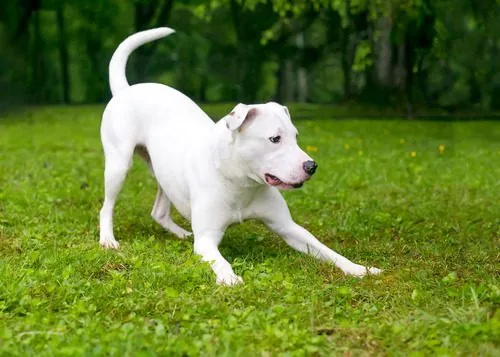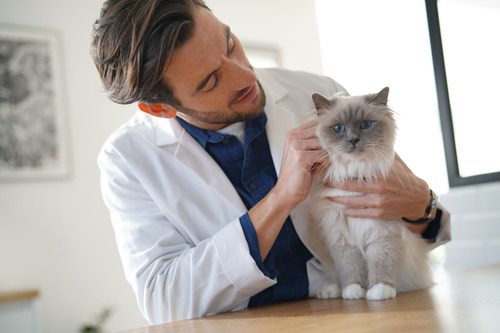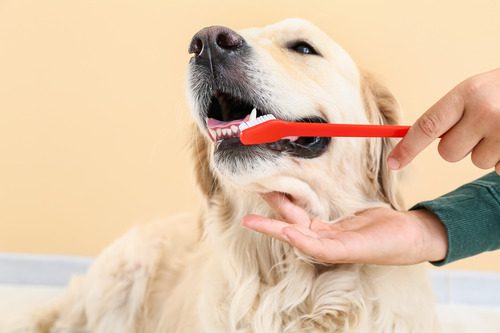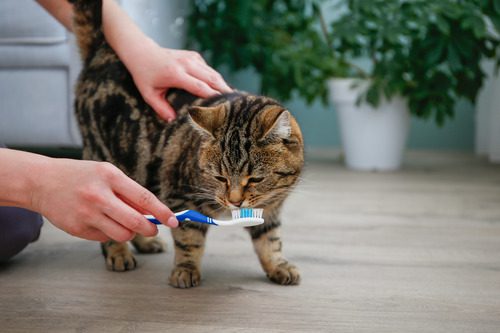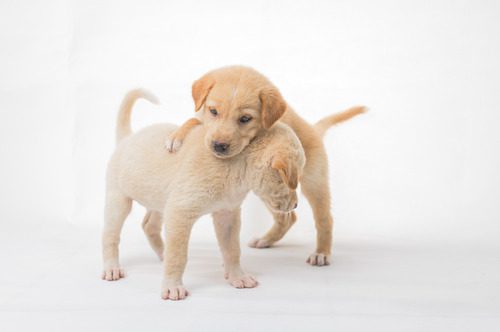Dog Runny Nose: Possible Causes for a Runny Nose
A dog runny nose can be a common but concerning issue for pet owners. At Providence Veterinary Hospital and Clinic in Alameda, California, we understand the worries that come with seeing your pet experience discomfort. If you notice your dog has a runny nose, it’s important to understand the potential causes and when to seek professional veterinary care. Call us at (510) 521-6608 or (510) 521-5775 if you have concerns about your dog’s health.
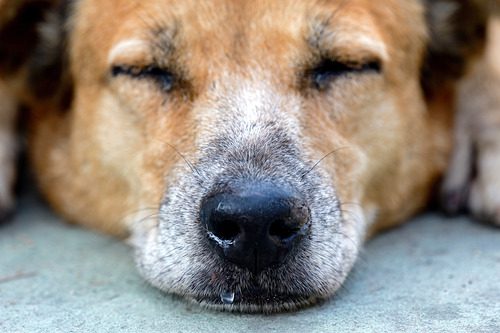
Causes of a Dog Runny Nose
A runny nose in dogs can result from various causes, ranging from mild irritations to more serious health conditions. Understanding these potential causes can help you identify when it’s time to visit Providence Veterinary Hospital and Clinic.
Allergies
One of the most common causes of a dog runny nose is allergies. Dogs can be allergic to a variety of environmental factors, including pollen, dust, mold, and even certain foods. Allergic reactions often lead to sneezing, runny eyes, and nasal discharge. If your dog’s runny nose is accompanied by other symptoms such as itching or skin irritations, allergies might be the culprit.
Infections
Both bacterial and viral infections can cause a dog runny nose. Respiratory infections such as canine influenza, kennel cough, and distemper often present with nasal discharge as one of the symptoms. Infections may lead to a thicker, colored discharge and can be accompanied by coughing, lethargy, and a loss of appetite. If your dog shows these signs, it is crucial to seek veterinary care promptly.
Foreign Objects
Dogs are naturally curious and might sniff around in places they shouldn’t. Occasionally, a foreign object like a blade of grass, small toy, or piece of debris can get lodged in their nasal passages, causing irritation and a runny nose. If your dog is persistently pawing at their nose or sneezing excessively, a foreign object might be to blame.
Nasal Polyps or Tumors
Though less common, nasal polyps or tumors can also lead to a dog runny nose. These growths can block the nasal passages, leading to a persistent discharge. Tumors can be benign or malignant, so it is important to get a thorough examination from your veterinarian if your dog’s runny nose is persistent and doesn’t respond to other treatments.
Dental Problems
Believe it or not, dental issues can sometimes cause nasal discharge in dogs. Infections in the teeth or gums can spread to the nasal cavities, leading to a runny nose. Regular dental check-ups are essential to prevent these issues and maintain your dog’s overall health.
Chronic Rhinitis or Sinusitis
Chronic rhinitis or sinusitis is another potential cause of a dog’s runny nose. These conditions involve inflammation of the nasal passages or sinuses and can be triggered by infections, allergies, or other irritants. Dogs with chronic rhinitis or sinusitis often have a persistent nasal discharge that may vary in consistency and color.
Breed-Specific Issues
Certain dog breeds are more prone to nasal issues due to their anatomy. Brachycephalic breeds, such as Bulldogs, Pugs, and Boxers, have shorter nasal passages that are more susceptible to blockages and infections. If you own a brachycephalic breed, regular veterinary check-ups are important to catch any issues early.
Recognizing Symptoms and Seeking Veterinary Care
When dealing with a dog runny nose, recognizing the accompanying symptoms can help determine the severity of the condition. Along with nasal discharge, look for symptoms like sneezing, coughing, lethargy, and loss of appetite. If your dog exhibits any of these signs, it’s best to consult with the professionals at Providence Veterinary Hospital and Clinic. Early diagnosis and treatment can prevent more serious complications.
When to Call the Vet
It’s essential to know when to seek veterinary care for your dog’s runny nose. If your dog’s nasal discharge is persistent, thick, or colored, or if it is accompanied by other concerning symptoms, you should contact us at (510) 521-6608 or (510) 521-5775. Prompt attention to these symptoms can ensure your dog receives the appropriate care and treatment.
Diagnostic Approaches
When you bring your dog to Providence Veterinary Hospital and Clinic for a runny nose, our veterinarians will perform a thorough examination to determine the underlying cause. Several diagnostic approaches may be used.
Physical Examination
A comprehensive physical examination will be conducted to assess your dog’s overall health. The veterinarian will check for any visible signs of infection, foreign objects, or abnormalities in the nasal passages.
Diagnostic Imaging
If a physical examination does not reveal the cause, diagnostic imaging such as X-rays or CT scans may be necessary. These imaging techniques can provide a detailed view of your dog’s nasal cavities and help identify issues like polyps, tumors, or foreign objects.
Laboratory Tests
Laboratory tests, including blood work and nasal swabs, can help identify infections or underlying health conditions. These tests can determine if a bacterial, viral, or fungal infection is present and guide the appropriate treatment plan.
Treatment Options for a Dog Runny Nose
Treatment for a dog runny nose depends on the underlying cause. Once a diagnosis is made, our veterinarians will recommend the best course of action to alleviate your dog’s symptoms and improve their health.
Medications
If allergies or infections are the cause, medications such as antihistamines, antibiotics, or antivirals may be prescribed. These medications can help reduce inflammation, fight off infections, and alleviate symptoms.
Removal of Foreign Objects
If a foreign object is causing the runny nose, it will need to be carefully removed. This procedure is typically done under sedation to ensure your dog’s comfort and safety.
Surgery
In cases of nasal polyps or tumors, surgery may be necessary to remove the growths and restore normal nasal function. Our skilled veterinary surgeons at Providence Veterinary Hospital and Clinic will perform these procedures with the utmost care.
Dental Care
If dental problems are contributing to your dog’s runny nose, appropriate dental treatments will be provided. This may include cleaning, extractions, or treatment of infections to eliminate the source of the nasal discharge.
Preventing a Dog Runny Nose
While not all causes of a dog runny nose can be prevented, there are steps you can take to reduce the risk. Regular veterinary check-ups, proper dental care, and avoiding exposure to known allergens can help keep your dog’s nasal passages healthy.
- Regular Check-Ups: Routine veterinary visits are crucial for maintaining your dog’s health. Regular check-ups allow for early detection of potential issues and ensure your dog receives timely treatment.
- Dental Hygiene: Maintaining good dental hygiene is important not only for preventing dental issues but also for overall health. Regular brushing and professional cleanings can help prevent infections that may lead to a runny nose.
- Environmental Control: Limiting your dog’s exposure to known allergens and irritants can help prevent allergic reactions and respiratory issues. Keep your home clean, avoid using strong chemicals, and provide a healthy diet to support your dog’s immune system.
Understanding the Signs of a Serious Dog Runny Nose
A dog runny nose can be a sign of various health conditions, some more serious than others. By understanding the possible causes and seeking prompt veterinary care when needed, you can ensure your dog stays healthy and comfortable. If you have any concerns about your dog’s health, contact Providence Veterinary Hospital and Clinic at (510) 521-6608 or (510) 521-5775. Our team is here to provide the best care for your furry family member.
Recent Posts
What Does Your Dog’s Tail Wag Really Mean?
What Does Your Dog’s Tail Wag Really Mean? Dogs use their tails for much more than just…
Feline Leukemia: Prevention and Detection
Feline Leukemia: Prevention and Detection Cat Feline Leukemia is a serious viral disease that affects felines worldwide….
A Team Effort: How Home Care and Professional Cleanings Keep Your Dog’s Teeth Healthy
A Team Effort: How Home Care and Professional Cleanings Keep Your Dog’s Teeth Healthy Dental health is…
The Perfect Pair: Home Care and Professional Cleanings for Your Cat’s Teeth
The Perfect Pair: Home Care and Professional Cleanings for Your Cat’s Teeth Caring for your cat’s teeth…
What is Bordetella and Why Should You Care?
What is Bordetella and Why Should You Care? Bordetella is a term many pet owners hear when…
Providence Veterinary Hospital & Clinic serve Alameda, CA as well as Oakland, San Leandro, and the surrounding areas with superb veterinary medicine and gentle, compassionate care. We’ve been a part of this community since 1947 when a veterinarian started seeing pets in his home after the end of World War II. He built an animal hospital right under his house, and that’s where we remain to this day (with modern remodeling in 2016, to outfit the hospital with the latest medical technology and equipment, of course!).

